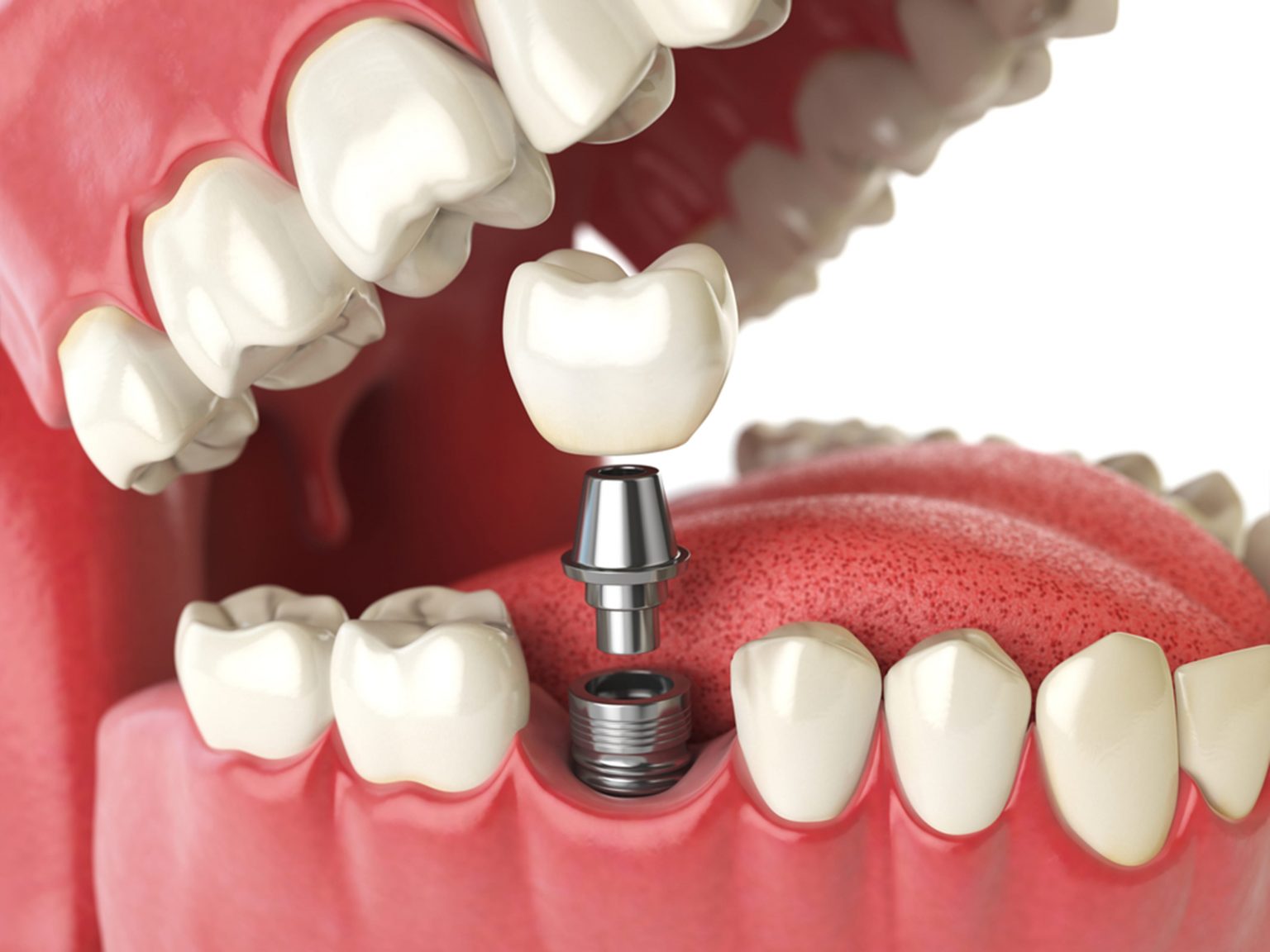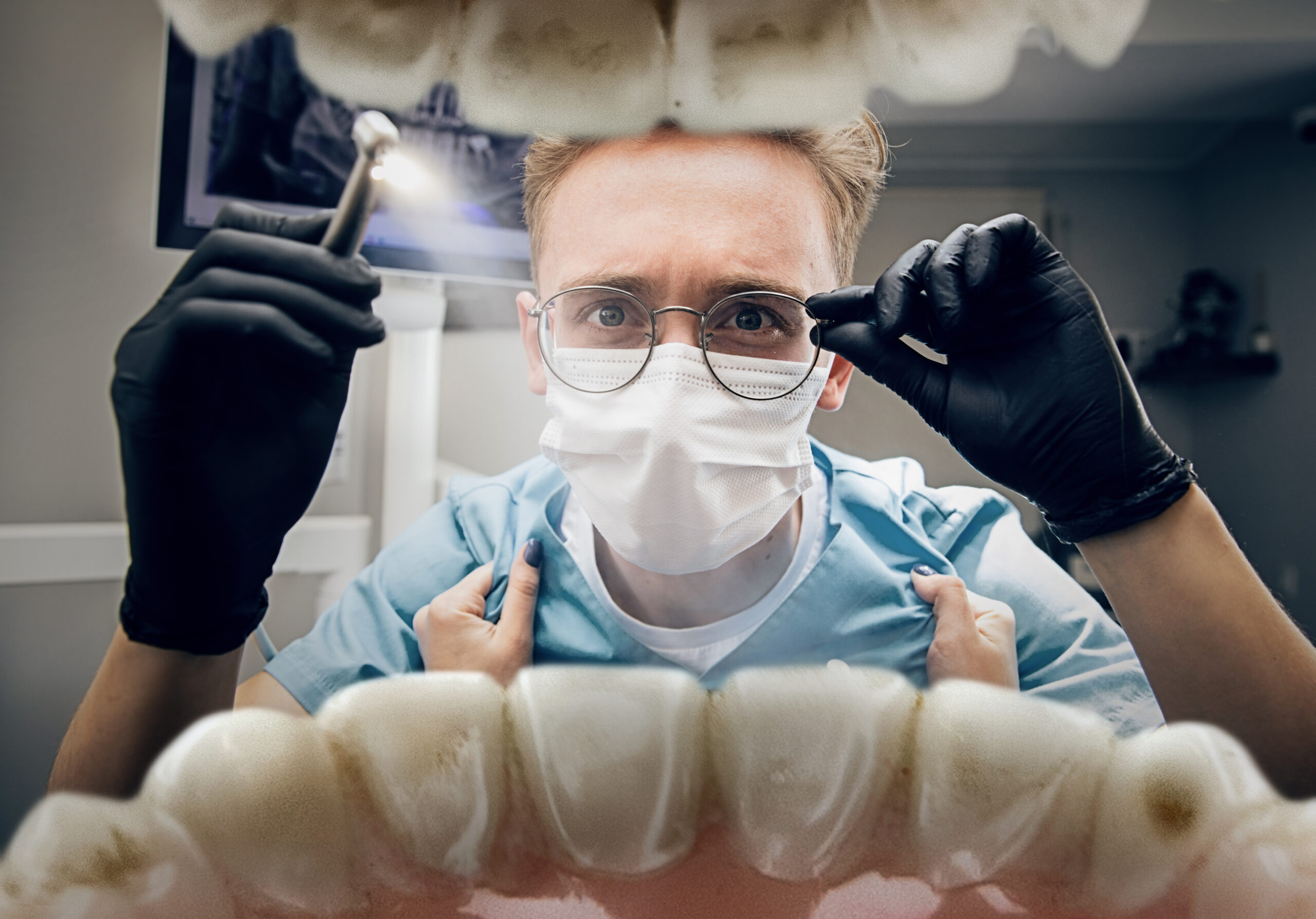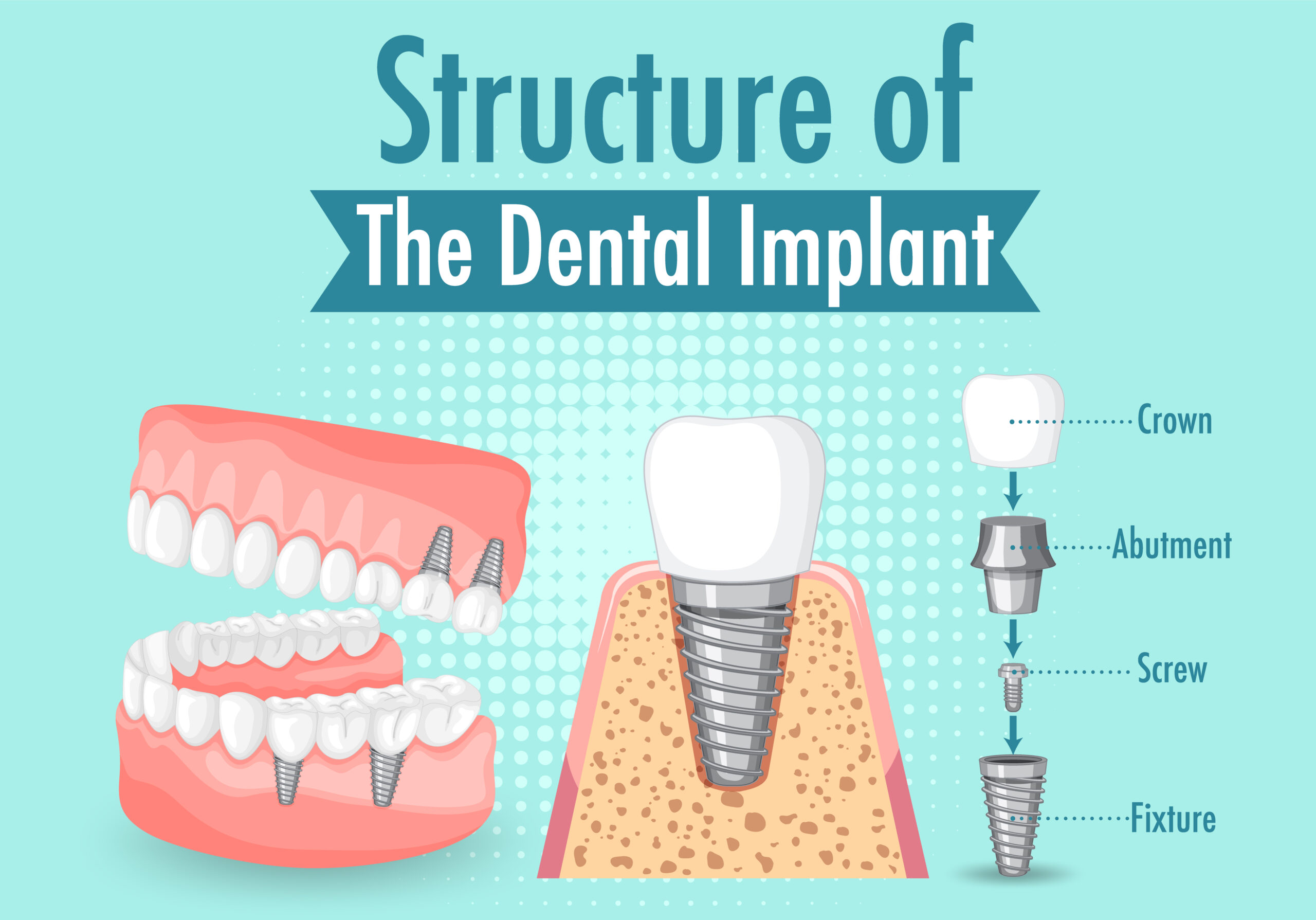Dental implant
Dental implants have revolutionized the field of restorative dentistry, offering a reliable and long-lasting solution for replacing missing teeth. Whether you’ve lost a single tooth or multiple teeth, dental implants provide a natural-looking and functional alternative to traditional dentures or bridges. With their ability to mimic the structure and function of natural teeth, professional dental implants can help you regain confidence in your smile and enjoy improved oral health and quality of life.
Benefits of Professional Dental Implants: Professional dental implants offer numerous advantages over other tooth replacement options:
- Stability and Durability: Dental implants are surgically placed into the jawbone, where they fuse with the surrounding bone tissue through a process called osseointegration. This creates a stable foundation for replacement teeth, ensuring they remain securely in place and withstand the forces of chewing and biting. With proper care, dental implants can last a lifetime, making them a durable and cost-effective investment in your oral health.
- Natural Look and Feel: Unlike removable dentures or bridges, dental implants closely mimic the appearance and function of natural teeth. Custom-designed to match the size, shape, and color of your existing teeth, implant-supported crowns or prosthetics blend seamlessly with your smile, restoring both aesthetics and functionality.
- Preservation of Bone Health: Tooth loss can lead to bone resorption, causing the jawbone to deteriorate over time and altering facial structure. Dental implants stimulate the jawbone, preventing bone loss and preserving facial contours and integrity. By maintaining bone density and structure, implants help prevent premature aging and maintain a youthful appearance.
- Improved Oral Health: Dental implants do not require alteration or support from adjacent teeth, unlike traditional bridges, which may compromise the integrity of healthy teeth. By preserving neighboring teeth and supporting overall dental health, implants contribute to long-term oral health and function.
- Enhanced Comfort and Confidence: With dental implants, you can enjoy the confidence of a stable and secure smile without the worry of dentures slipping or shifting. Implant-supported teeth feel and function like natural teeth, allowing you to speak, eat, and smile with ease and confidence.
The Dental Implant Procedure: The process of receiving professional dental implants typically involves the following steps:
- Initial Consultation: During your initial consultation, a dental implant specialist will evaluate your oral health, discuss your treatment goals, and determine if you’re a candidate for dental implants. Diagnostic tests, such as X-rays or CT scans, may be taken to assess bone density and identify potential treatment challenges.
- Implant Placement: Dental implants are surgically placed into the jawbone during a minor surgical procedure. The implants serve as artificial tooth roots, providing a stable foundation for replacement teeth.
- Healing and Osseointegration: After implant placement, a period of healing is required to allow the implants to integrate with the surrounding bone tissue. This process, known as osseointegration, typically takes several months to complete.
- Abutment Placement: Once the implants have fully integrated, abutments are attached to the implants to serve as connectors between the implants and the prosthetic teeth.
- Restoration: Custom-made crowns, bridges, or dentures are fabricated to fit securely onto the abutments and complete your smile. These prosthetic teeth are designed to blend seamlessly with your natural teeth, restoring aesthetics and function.
- Follow-up Care: After your dental implants are restored, regular dental check-ups and maintenance visits are essential for monitoring your oral health and ensuring the longevity of your implants. Good oral hygiene practices, including brushing, flossing, and routine dental cleanings, help preserve the health and appearance of your implant-supported teeth.





